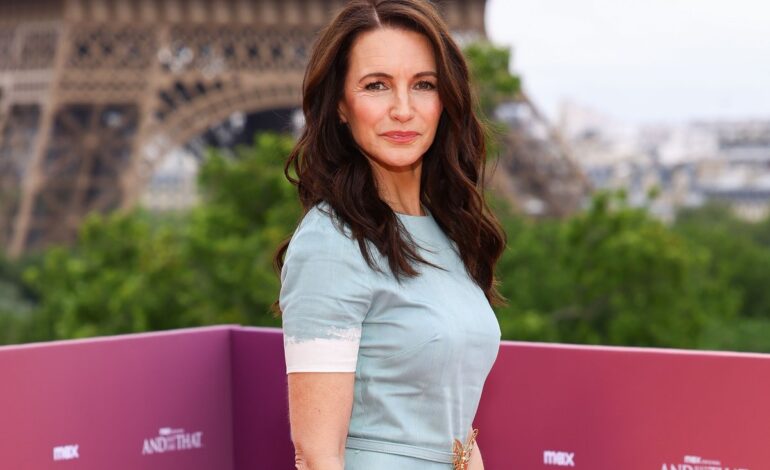Kristin Davis Says Sarah Jessica Parker Called Out Her ‘Body Dysmorphia’ During SATC Run

Jordan Collins here. Okay, I’ll explain, but try to keep up: Kristin Davis has publicly named Sarah Jessica Parker as the co-star who told her she had “body dysmorphia” while they were filming Sex and the City.
Let’s not pretend this is fluff. The reveal happened on Davis’ podcast, “Are You a Charlotte?,” where the 60-year-old actress spoke frankly with guest Benito Skinner about long-brewing body image struggles stemming from her time on the cult HBO series and earlier work on Melrose Place. Davis said that on set Parker would sometimes tell her, “You have body dysmorphia,” and that those comments, combined with the culture of thinness around her, contributed to disordered eating and extreme dieting.
Davis’ account is measured, not melodramatic. She explained that being told she was “pear-shaped” felt like a daily verdict, making it “hard to think straight.” She recalled fainting in a parking lot once while on a restrictive diet and admitted she did not always remember details of what she ate when she was trying to conform to the industry’s skinny standard. Davis also noted how public perception complicated matters: fans who complimented her by saying she wasn’t “fat” were often comparing her to Sarah Jessica Parker, which only intensified her self-consciousness.
This is not an isolated anecdote. Davis has previously discussed pressure to stay thin during her Melrose Place days, telling People in February that the set had a “general vibe” about thinness and that everyone was “gorgeous and super skinny.” She described training regimes like hiring a running coach and doing back-to-back 90-minute spin classes to maintain a look that fit the era’s TV ideals.
Let’s parse the facts plainly. Davis, Parker, Cynthia Nixon and Kim Cattrall starred in Sex and the City from 1998 through 2004; Davis and Parker reunited, along with Nixon, for And Just Like That, which broadcast three seasons and concluded recently. Davis’ comments are based on personal recollection shared on her own podcast; The New York Post reported the interview and Davis’ statements, and People previously covered Davis’ remarks about pressure on Melrose Place. The Post has reached out to Parker’s representative for comment, according to reporting.
Why does this matter beyond set gossip? Because it illustrates how on-set dynamics and public comparisons can shape a performer’s relationship with their body for decades. When a leading co-star suggests you might have body dysmorphia, it isn’t just banter; it can become a mirror that distorts rather than clarifies. Davis’ candidness about fainting, dieting and not remembering meals underscores the real health risks tied to image-driven industries.
And yes, context: fans often try to comfort celebrities with well-meaning but reductive statements like “Oh, you’re not fat,” which Davis says felt like a backhanded compliment when she was standing next to Parker. She’s not vilifying fans; she’s pointing out how social comparisons — even those intended as praise — feed insecurity.
Expect this to reignite conversations about mental health and physical expectations in Hollywood. Will Parker respond? Possibly. Will networks and showrunners take notes and do better? One would hope, though hope is often the least credible thing in showbiz.
Closing thought: celebrities are people who work under microscopes, and sometimes that magnifying glass does real damage. You probably didn’t need me to tell you that, but I did anyway.
Glad I could clear that up for you.
Sources: Celebrity Storm and New York Post, People
Attribution: Creative Commons Licensed




